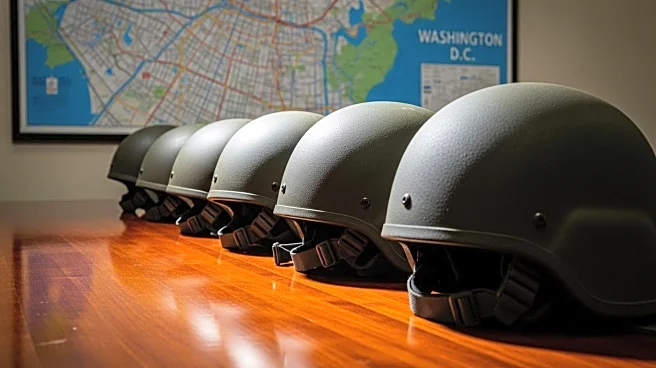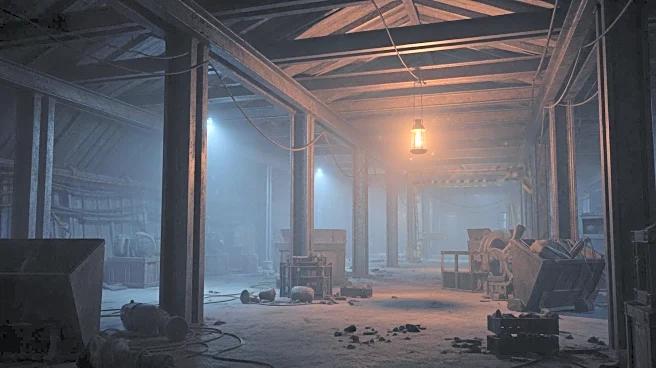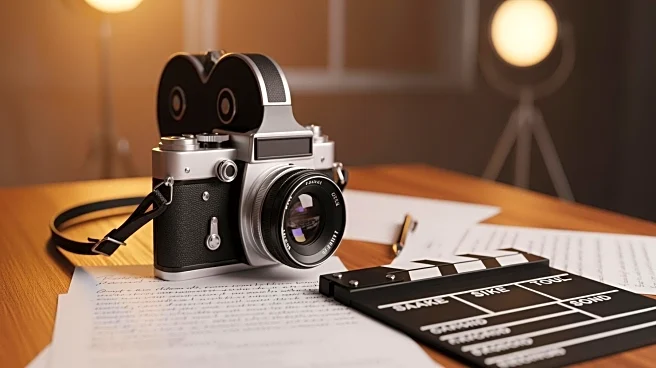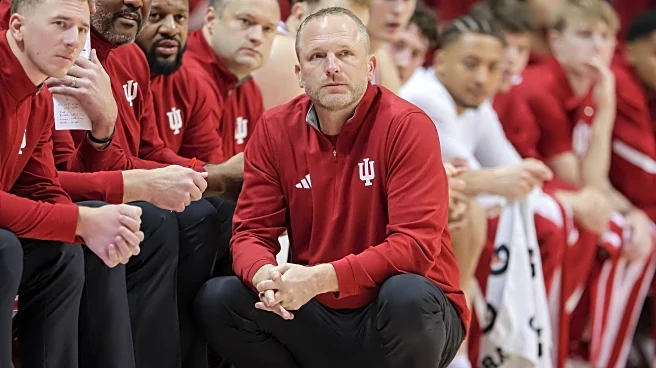What is the story about?
What's Happening?
President Trump has ordered the deployment of National Guard troops to Washington D.C. to assist in crime prevention efforts. This move is part of a broader strategy to address urban crime, with the National Guard patrolling the National Mall and other areas of the capital. The deployment follows previous instances where the National Guard was used for law enforcement support, raising questions about the appropriateness of using military forces for domestic policing. The National Guard, traditionally trained for foreign conflicts, is now tasked with urban crime prevention, a role that some argue is outside their primary function.
Why It's Important?
The deployment of the National Guard in Washington D.C. highlights the ongoing debate about the militarization of domestic law enforcement. This decision could set a precedent for future use of military forces in civilian policing, potentially impacting civil-military relations and public perception of law enforcement. Critics argue that using the National Guard for crime prevention may blur the lines between military and police roles, affecting the Guard's readiness for its primary mission of national defense. The move also reflects President Trump's approach to governance, emphasizing strong law enforcement measures.
What's Next?
The deployment may lead to increased scrutiny from civil rights groups and lawmakers concerned about the militarization of law enforcement. There could be calls for legislative action to define the limits of military involvement in domestic policing. Additionally, the effectiveness of the National Guard in crime prevention will likely be evaluated, influencing future decisions on similar deployments. Stakeholders, including local government officials and community leaders, may seek dialogue with federal authorities to address concerns and explore alternative crime prevention strategies.
Beyond the Headlines
The use of the National Guard in Washington D.C. raises ethical questions about the balance between security and civil liberties. It may prompt discussions on the role of the military in civilian life and the potential implications for democratic governance. Long-term, this could influence public trust in both the military and law enforcement agencies, shaping societal attitudes towards security measures and government authority.

















